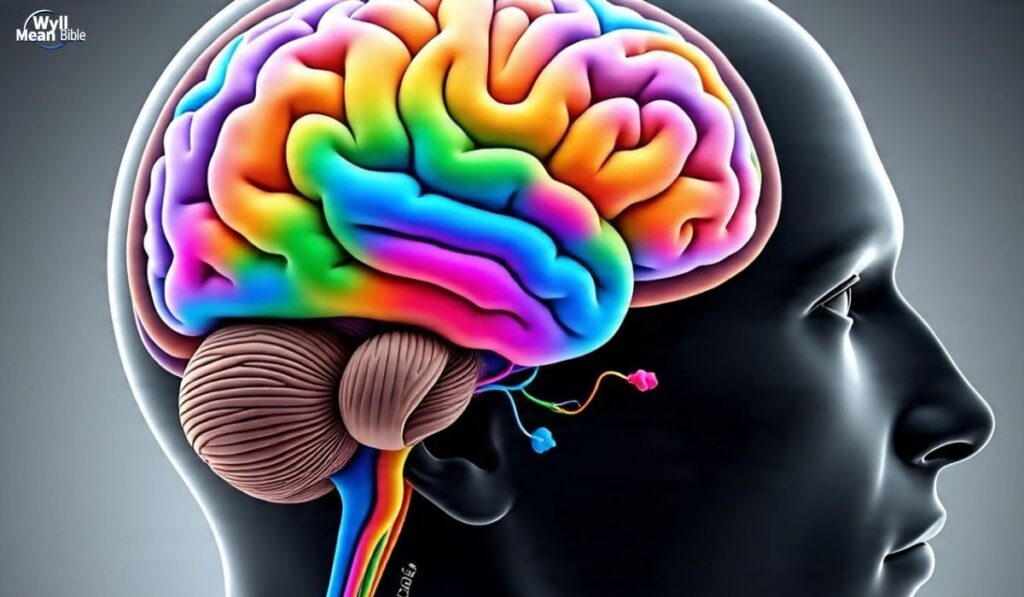Seeing a dead person alive in a dream often carries deep emotional and spiritual significance, especially when viewed through a biblical lens in 2025. Such dreams can stir feelings of comfort, warning, or divine revelation, reminding us of the thin line between the physical and spiritual realms.
Biblically, they may symbolize unfinished matters, divine messages, or God’s call for reflection, prayer, and discernment. Spiritually, these dreams encourage believers to seek guidance from Scripture and the Holy Spirit, ensuring they interpret the vision not with fear but with faith, wisdom, and hope in God’s greater plan.
Understanding Dreams in Biblical Context
In the biblical context, dreams are often seen as a channel through which God communicates with His people, offering guidance, warnings, or revelations. Throughout Scripture, figures like Joseph, Daniel, and Solomon received divine messages in their dreams, shaping their decisions and destinies.
Rather than dismissing dreams as random thoughts, the Bible emphasizes discernment and prayer to understand their meaning.
By aligning dream interpretations with God’s Word, believers can gain spiritual insight, clarity, and direction, while avoiding confusion or misinterpretation that may arise from relying solely on human reasoning.
The Bible and Dreams
The Bible highlights dreams as a powerful medium through which God reveals His will, guidance, and warnings to His people. Unlike ordinary human imagination, biblical dreams often carry divine significance, showing that God can use them as a spiritual tool to instruct, protect, or prepare His followers.
They remind us that the spiritual realm is active and that God’s voice can be heard in ways beyond the physical world.
Dreams in the Bible: Divine Communication
Many biblical accounts show how God used dreams to deliver important messages, such as Joseph’s dreams about his future, Pharaoh’s dreams interpreted by Joseph, and Daniel’s visions that revealed God’s plans.
These examples reveal that dreams were not random but intentional forms of communication from God, meant to guide, warn, or encourage His people. This underscores the importance of seeking wisdom and prayerful interpretation when encountering spiritually significant dreams.
Common Dream Symbols in the Bible
Common dream symbols in the Bible often carry deep spiritual meaning, serving as metaphors through which God conveys His messages. For example, water can represent cleansing, life, or the Holy Spirit, while bread often symbolizes God’s provision and spiritual nourishment.
Animals, like lions or lambs, may reflect strength, danger, or purity, and numbers such as seven or forty frequently signify completion, testing, or divine purpose.
These symbols show that dreams are not always literal but can be rich in hidden meaning, requiring prayer, wisdom, and alignment with Scripture to truly understand their significance.
The Meaning of Death and Life in Scripture

In Scripture, death is not seen as the final end but as a transition, while life is portrayed as a gift rooted in God’s eternal plan. The Bible teaches that physical death is a result of sin, yet through Christ, believers are offered the promise of eternal life.
This contrast between death and life highlights God’s power to redeem, restore, and bring hope even in moments of loss. It reminds us that both experiences carry spiritual lessons meant to draw us closer to Him.
Resurrection and Renewal: Biblical Themes
The theme of resurrection runs throughout the Bible, symbolizing God’s ability to bring new life out of what seems lost or broken. From the resurrection of Jesus to visions of dry bones coming to life in Ezekiel, Scripture emphasizes renewal, restoration, and victory over death.
These themes encourage believers to trust in God’s power to transform situations, breathe life into hopeless circumstances, and affirm the promise of eternal renewal through faith in Christ.
The Meaning of Seeing a Dead Person Alive in a Dream
Seeing a dead person alive in a dream can be a powerful and emotional experience, often carrying symbolic meaning rather than a literal one. Biblically, such dreams may reflect themes of remembrance, unfinished spiritual matters, or God’s way of reminding us of eternal truths about life, death, and resurrection. Spiritually, it could signal a call to prayer, healing from grief, or reflection on past relationships and lessons left behind.
Instead of viewing it with fear, believers are encouraged to seek God’s wisdom and discernment, trusting that He can use even such dreams to bring guidance, comfort, or a deeper awareness of His presence.
A Sign of Spiritual Resurrection?
Dreaming of a dead person alive can sometimes symbolize spiritual resurrection, pointing to renewal, transformation, or a fresh beginning in one’s faith journey.
Just as the Bible highlights resurrection as victory over death, such dreams may reflect God’s work in reviving areas of life that feel lost, stagnant, or broken. It can be a reminder that through Christ, new life and hope are always possible.
A Need for Closure or Healing
Dreaming of a dead person alive can sometimes symbolize spiritual resurrection, pointing to renewal, transformation, or a fresh beginning in one’s faith journey.
Just as the Bible highlights resurrection as victory over death, such dreams may reflect God’s work in reviving areas of life that feel lost, stagnant, or broken. It can be a reminder that through Christ, new life and hope are always possible.
Emotional and Psychological Aspects

From an emotional and psychological perspective, seeing a dead person alive in a dream often reflects the mind’s way of processing grief, longing, or unresolved feelings. Such dreams may arise from a deep desire to reconnect with a loved one, to find closure, or to relive memories tied to them.
Psychologists suggest that these dreams can be part of the healing process, helping the dreamer work through emotions they may not fully express when awake.
They highlight the powerful link between memory, emotion, and the subconscious, showing how dreams can mirror the heart’s deepest needs and struggles.
Emotions Influencing Dream Interpretation
Our emotions play a major role in shaping how we interpret dreams, especially those involving the dead. Feelings of fear, love, guilt, or longing can influence whether we see the dream as comforting, unsettling, or meaningful.
Understanding the emotional state behind the dream helps reveal whether it points to healing, divine guidance, or unresolved issues.
Grief and Dreams of the Deceased
Dreams of deceased loved ones often surface during grief, serving as a way for the subconscious to process loss.
They may provide comfort by allowing the dreamer to feel close to the departed again or highlight the need for deeper healing. Such dreams can reflect the heart’s struggle to let go while still holding onto cherished memories.
Biblical Examples of Dead People Appearing Alive in Dreams
Biblical examples of dead people appearing alive in dreams are rare but deeply symbolic, often pointing to God’s power over life and death.
One striking instance is found in Matthew 17, where Moses and Elijah, long departed, appeared alive during Jesus’ transfiguration, representing the law and the prophets fulfilled in Him.
Similarly, visions of the departed in Scripture often highlight God’s authority, the reality of the spiritual realm, and the assurance of eternal life.
These examples remind believers that such encounters are not meant to instill fear but to reveal divine truth, strengthen faith, and emphasize God’s plan of resurrection and renewal.
Joseph’s Dreams
Joseph’s dreams in Genesis, though not about the dead, serve as a strong example of God using visions to reveal future events. His ability to interpret dreams given by God shows how divine wisdom can unlock hidden meaning and guide people through significant life changes.
The Resurrection of Jesus and Its Influence
The resurrection of Jesus is the ultimate biblical symbol of life overcoming death, influencing how Christians view dreams of the deceased. Such dreams may remind believers of Christ’s victory over the grave and the hope of eternal life, turning fear into reassurance and faith.
Dreams as a Spiritual Message: A Call for Reflection
Dreams as a spiritual message often serve as a gentle call for reflection, urging the dreamer to pause and examine their life, choices, and relationship with God. When a dead person appears alive in a dream, it may symbolize unfinished lessons, the need for deeper faith, or God’s invitation to seek clarity through prayer and Scripture.
Rather than dismissing these dreams as mere imagination, believers can view them as opportunities to grow spiritually, confront hidden emotions, and realign with God’s purpose.
Such dreams remind us that reflection is not just about the past but about preparing the heart for renewal and direction from the Lord.
Seeking Peace and Guidance
For many, seeing a dead person alive in a dream is a call to seek inner peace and divine guidance. It may point to unresolved matters needing prayer, forgiveness, or comfort from God’s Word. Such dreams remind believers that true peace is found in His presence.
Repentance and Renewal
Some dreams may highlight areas of spiritual neglect or wrongdoing, urging the dreamer toward repentance. Just as death in Scripture often symbolizes separation from God, seeing life restored can represent His invitation to renewal, forgiveness, and a fresh start in faith.
Warnings and Reflections
At times, these dreams may serve as warnings, urging believers to reflect on choices, avoid sin, or prepare for spiritual battles ahead. They remind us that God can use even unsettling visions to guide, protect, and realign us with His will.
The Role of Faith and Prayer in Understanding Dreams

Faith and prayer play a vital role in understanding dreams, especially those with deep spiritual or emotional weight. While dreams can stir confusion or fear, turning to God in prayer helps believers seek wisdom, peace, and clarity.
Faith allows one to trust that God can use even unsettling dreams to reveal guidance, correction, or comfort, aligning interpretations with His Word rather than human assumptions.
By praying for discernment and relying on Scripture, believers can avoid misinterpretation and instead find meaning that strengthens their walk with God and deepens their spiritual understanding.
Praying for Clarity
Prayer is the first step in understanding dreams, as it opens the heart to God’s wisdom and guidance. By praying for clarity, believers invite the Holy Spirit to reveal whether a dream carries divine meaning or simply reflects personal emotions.
This act of surrender shows trust in God’s ability to bring light to what seems hidden.
Turning to Scripture for Comfort
Scripture provides both comfort and direction when dreams stir confusion or fear. The Bible reminds believers that God is not the author of fear but of peace, and His Word offers reassurance of His presence. By meditating on Scripture, dreamers can align their interpretations with God’s truth rather than relying on uncertain feelings.
Seeking Spiritual Leaders for Guidance
Sometimes dreams can feel too heavy or complex to interpret alone, making the counsel of spiritual leaders valuable. Pastors, mentors, or trusted believers can provide biblical insight and discernment that help uncover God’s message within the dream. Their guidance ensures interpretations remain rooted in faith and sound doctrine.
What to Do After Having a Dream About a Deceased Loved One
After having a dream about a deceased loved one, it’s important to approach it with both emotional sensitivity and spiritual discernment. Instead of reacting with fear or confusion, take time to reflect on the feelings the dream stirred whether comfort, grief, or longing.
Pray for God’s guidance to understand if the dream carries a deeper spiritual message or simply reflects your emotions and memories.
Turning to Scripture for reassurance and, if needed, seeking counsel from a trusted spiritual leader can provide peace and clarity.
Most importantly, allow the dream to inspire healing, gratitude for past relationships, and a renewed focus on God’s promise of eternal life.
Practical Steps for Reflection
When you experience a dream about a deceased loved one, taking practical steps for reflection can help you process its meaning with peace. Start by journaling the details of the dream, noting the emotions you felt and any symbols that stood out. Pray over these reflections, asking God for discernment and guidance. This intentional process allows you to separate emotional longing from possible spiritual insight, leading to greater clarity and healing.
Turning to Scripture for Comfort
Scripture serves as a steady anchor when dreams stir up grief or uncertainty. Verses about God’s peace, eternal life, and His nearness to the brokenhearted remind us that He is present even in moments of longing. By meditating on passages like John 14:27 or Psalm 34:18, believers can find reassurance that God’s promises bring comfort, hope, and strength to navigate the emotions tied to such dreams.
Final thought
In conclusion, seeing a dead person alive in a dream in 2025 carries profound biblical and spiritual insights, reminding us of God’s power over life and death, the hope of resurrection, and the importance of reflection. While such dreams may stir emotions of grief, longing, or even confusion, they can also serve as a call to prayer, healing, and renewed faith.
By seeking understanding through Scripture, prayer, and spiritual guidance, believers can move beyond fear to embrace the deeper lessons these dreams may hold encouragement, comfort, and a reminder of God’s eternal promises.

Muhammad Shoaib is an expert writer in Bible meaning, quotes, bible, Prayers, and pick-up lines, known for crafting creative, catchy, and SEO-friendly content that connects and captivates audiences.






